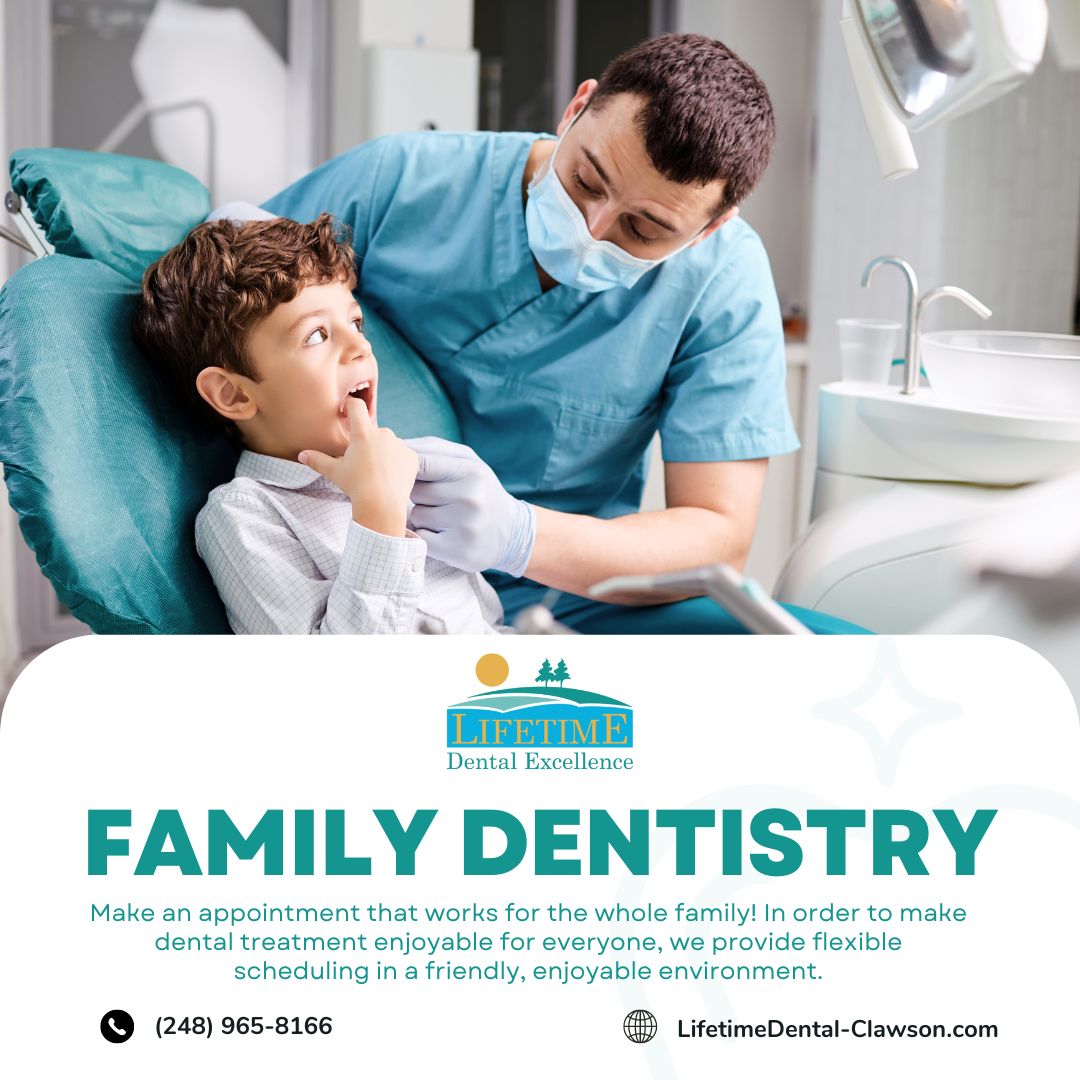
Starting a family brings immense joy and excitement, but it also introduces new challenges that can make even simple tasks seem overwhelming. One thing you shouldn’t stress about is going to the dentist!
Setting a positive example is a wonderful way to teach your children the importance of dental health. When your family visits the dentist together, it not only comforts your little ones but also shows them the value of maintaining good oral hygiene.
Family dentistry offers the convenience of keeping everyone’s dental records in one place. No need to shuttle between different practices; everything is managed under one roof. If there’s a history of dental issues in your family, our dentists are equipped to monitor and address these concerns, ensuring your child’s oral health is well taken care of.
Continuity is another significant benefit of family dentistry. Your child won’t need to switch dentists as they grow, allowing your family to remain with a practice that knows your dental history. This consistency reduces hassle and provides peace of mind.
Family dentistry is a smart choice for every family. Amid the busyness of life, you can stay worry-free knowing that you and your loved ones will receive exceptional care from professionals who remember and understand your family’s dental needs.
Contact Lifetime Dental Excellence in Clawson, Michigan, to learn more and schedule an appointment. Your family’s oral health is our top priority!





